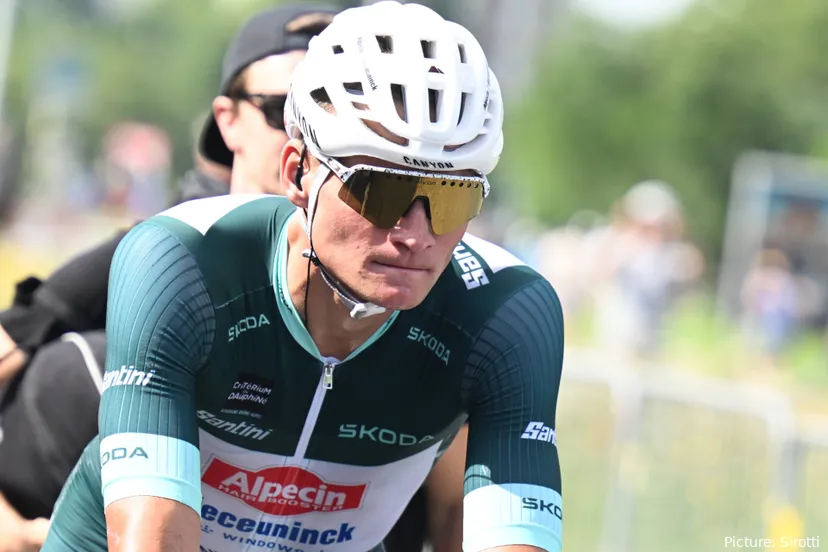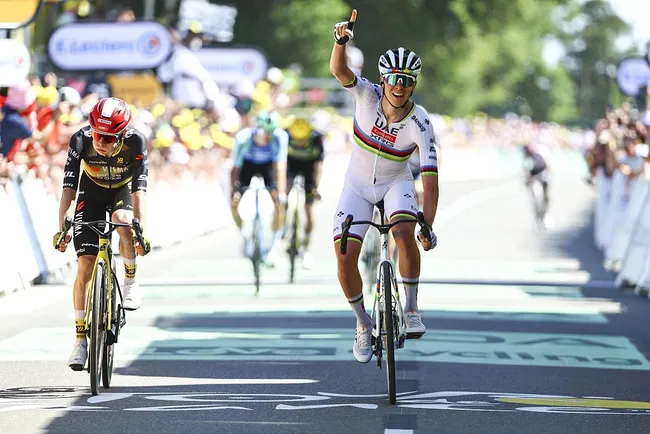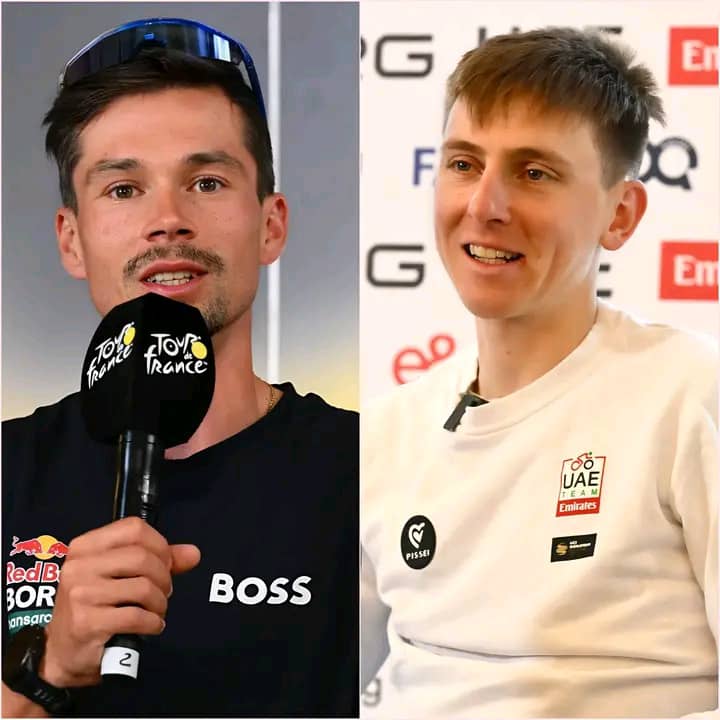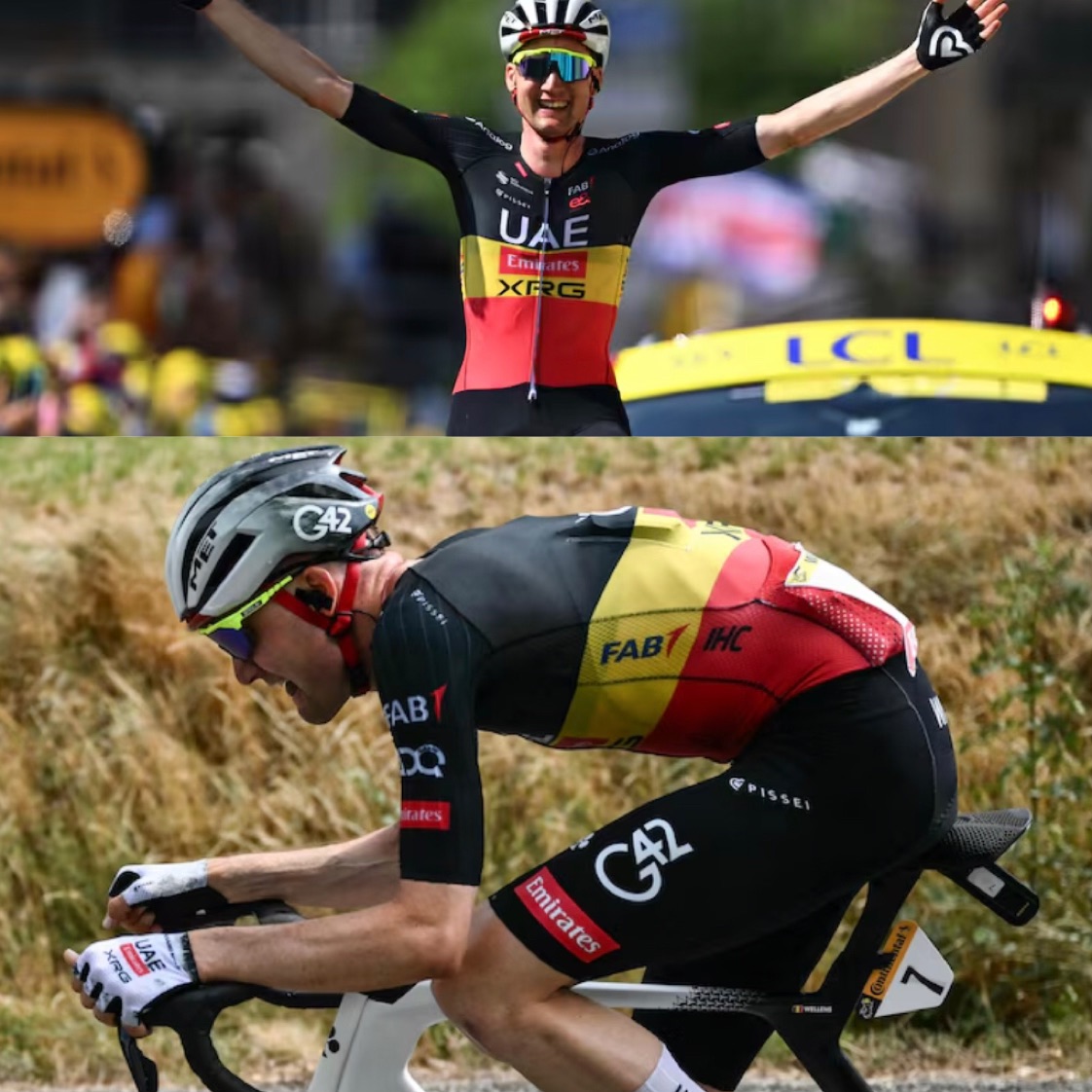**”Do It Right” – Annemiek van Vleuten Calls Out Mathieu van der Poel Over Mountain Bike Ambitions**
In the world of professional cycling, few athletes have managed to captivate audiences across multiple disciplines as convincingly as Mathieu van der Poel. Known for his explosive power, tactical acumen, and versatility, Van der Poel’s recent resurgence has sparked both admiration and debate within the cycling community. However, not everyone is convinced that his approach to mountain biking and his ambition to clinch the mountain bike world title align with the principles of dedication and discipline that define the sport.
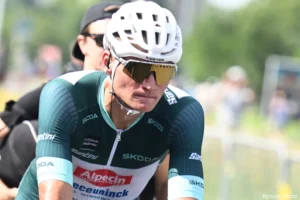
**Mathieu van der Poel’s Rapid Rise and Multisport Aspirations**
Mathieu van der Poel, hailing from a lineage of cycling legends, has become a household name through his exceptional performances in road racing, cyclocross, and mountain biking. His ability to switch disciplines seamlessly has earned him a reputation as one of the most talented and versatile riders of his generation. Van der Poel’s recent focus on mountain biking, especially his goal to win the mountain bike world championship, underscores his desire to excel across all facets of cycling.
Heading into the 2025 Tour de France, Van der Poel is in what many consider to be his best form yet. His performances in stage races and one-day classics have demonstrated his strength, endurance, and tactical intelligence. Yet, alongside his road commitments, Van der Poel has been actively participating in mountain biking events, signaling his serious intent to conquer that discipline as well.
**The Criticism from Annemiek van Vleuten**
Annemiek van Vleuten, a retired multiple-time world champion and one of the most respected figures in women’s cycling, has recently voiced her concerns about Van der Poel’s mountain bike ambitions. Her comments, made during a recent interview, reflect a deep understanding of what it takes to succeed at the highest levels of competitive cycling and serve as a cautionary note for Van der Poel’s approach.
Van Vleuten emphasized the importance of focus and dedication, suggesting that athletes aiming for the top in multiple disciplines must be prepared for the intense commitment required. She expressed her doubts that Van der Poel’s current approach—balancing road racing, cyclocross, and mountain biking—allows for the necessary specialization and intensive training needed to truly excel and win titles at the world level.
**”Do It Right” – The Philosophy Behind the Critique**
Central to Van Vleuten’s message is the phrase “do it right,” a philosophy rooted in the belief that success in elite sports demands unwavering focus, discipline, and respect for the nuances of each discipline. She argues that no matter how talented an athlete may be, achieving greatness requires a singular commitment and an understanding of the sacrifices involved.
Van Vleuten’s critique is not rooted in doubt about Van der Poel’s talent but in concern over how his multi-disciplinary pursuits may dilute his efforts and potentially hinder his chances of reaching the pinnacle in mountain biking. She highlights that winning a world title in mountain biking—especially in cross-country Olympic (XCO) or downhill disciplines—demands a specialized training regimen, consistent race experience, and mental resilience that cannot be fully cultivated if one is dividing focus among multiple disciplines.
**The Demands of Mountain Biking at the Elite Level**
Mountain biking, particularly at the world championship level, is a grueling sport that tests an athlete’s technical skills, endurance, and mental toughness. Unlike road racing, which often emphasizes sustained power and strategic pacing over long distances, mountain biking involves technical descents, climbs, and rapid decision-making, demanding a different set of skills and physical conditioning.
To succeed, athletes typically undergo years of focused training, often dedicating entire seasons to preparation specific to mountain biking. The physical toll is significant, with injury risks and fatigue management being critical factors. In recent years, athletes who have concentrated solely on mountain biking have achieved remarkable success, such as Nino Schurter and Pauline Ferrand-Prévot, who have dedicated their careers to mastering this demanding discipline.
**Balancing Multiple Disciplines: The Risks and Rewards**
While Van der Poel’s versatility has been celebrated as a hallmark of his talent, it also raises questions about the sustainability of such an approach at the elite level. Balancing road, cyclocross, and mountain biking requires meticulous planning, workload management, and often, compromises.
Some critics argue that attempting to excel simultaneously in multiple disciplines can lead to overtraining, fatigue, or injury, ultimately preventing an athlete from reaching their full potential in any one area. Others suggest that the physical and mental demands of such a diverse schedule can diminish focus and motivation, impacting performance.
However, others acknowledge that Van der Poel’s multi-disciplinary pursuits have elevated the sport’s profile and inspired a new generation of cyclists. His success across disciplines exemplifies the potential of modern cycling to break traditional boundaries.
**The Path to Success: What It Takes to “Do It Right”**
Van Vleuten’s call for Van der Poel to “do it right” emphasizes that genuine success in mountain biking—such as winning a world title—requires a dedicated, disciplined approach. This involves:
– **Focused Training:** Developing specific skills and physical conditioning tailored to mountain biking.
– **Consistent Competition:** Participating regularly in mountain biking events to gain experience and refine technique.
– **Mental Preparation:** Building resilience to handle the technical and psychological challenges unique to mountain biking.
– **Injury Prevention:** Implementing strategies to minimize injury risks associated with high-impact descents and technical courses.
– **Strategic Planning:** Allocating time and resources effectively between disciplines to maximize performance.
Van Vleuten’s perspective suggests that if Van der Poel truly aims for mountain biking success, he must prioritize and dedicate himself fully to the discipline, even if it means temporarily setting aside other pursuits.
**The Broader Implications for Cycling**
Van der Poel’s ambitions and Van Vleuten’s critique reflect broader themes within professional cycling: the tension between versatility and specialization, the pursuit of excellence, and the importance of discipline and respect for each sport’s demands.
While multi-disciplinary athletes like Van der Poel showcase the sport’s evolving nature, they also serve as a reminder that greatness often requires focused effort and sacrifice. The debate underscores the importance of understanding the unique challenges each discipline presents and respecting the dedication needed to conquer them.
A Call for Respect and Dedication
Annemiek van Vleuten’s comments serve as a valuable reminder that in the pursuit of sporting excellence, doing it “right” involves more than talent—it demands unwavering focus, strategic planning, and a deep respect for the discipline’s demands. For Mathieu van der Poel, the road to a mountain bike world title will require a careful balancing act, but ultimately, success will depend on his willingness to dedicate himself fully and to approach his ambitions with the seriousness they deserve.
As fans and fellow athletes watch his journey unfold, the message remains clear: greatness in cycling, as in all sports, is earned through perseverance, discipline, and doing it right. Whether Van der Poel chooses to pursue mountain biking with singular focus or continues his multi-disciplinary approach, the principles of dedication and respect will always be the foundation of true achievement.
